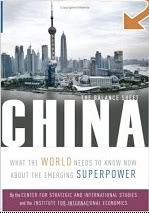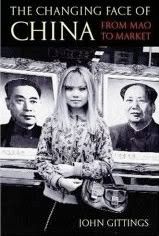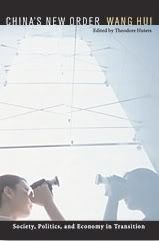Grooming China's future leaders
Apr 4, 2007
SUN WUKONG
By Wu Zhong, China Editor
HONG KONG - Shortly after the conclusion of the annual session of the National People's Congress (NPC) in mid-March, the Chinese Communist Party (CCP) has begun a new round of reshuffling its provincial leaders as a preparation for the convention of its 17th National Congress this autumn.
So far this year, the CCP has announced the appointment of new party secretaries for two provincial-level municipalities and four provinces. They are the municipalities of Shanghai and Tianjin and the provinces of Shandong, Zhejiang, Shaanxi and Qinghai. With the appointment of new party chiefs, these six provinces will soon have their new party committees.
According to the reshuffle plan, all of the 31 mainland provinces will have new party committees and new party secretaries by end of June. All new provincial party secretaries will automatically become deputies to the 17th Party Congress and candidates for the new Central Committee.
By the end of last year, 14 provinces had completed the reshuffle. The remaining 17 provinces, including the above-said six, will need to complete the reshuffle in the second quarter. New party secretaries for 11 of the remaining 17 provinces have yet to be announced.
Of the six newly appointed provincial party chiefs, three are in their 50s and therefore could be regarded as the "fifth generation" cadres who may move up the official hierarchy in future. And it is almost certain that the new party secretaries of Shanghai and Tianjin, Xi Jinping and Zhang Gaoli, will become members of the new Politburo in the 17th Party Congress, following the adopted practice.
The most eye-catching is the appointment of Xi Jinping, 54, as the party secretary of Shanghai municipality, which has surprised many political watchers inside and outside the country. Before obtaining his the new job, Xi was the party chief of Zhenjiang province.
In late September, the CCP leadership removed Shanghai party chief Chen Liangyu on corruption charges and appointed Shanghai Mayor Hang Zhen, 52, as acting party secretary. But Hang was in that post only for half a year, and Xi's appointment dashed Hang's hope to sit in the new Politburo. This is a rare case in which the acting party chief was not formally appointed to the post.
Given his age, Hang used to be thought to have a bright political future. The latest decision of the CCP power center therefore has sparked speculation that Hang might also be implicated in Chen's corruption case. But analysts in Beijing say Hang could never have had a chance because the power center has always wanted someone from outside Shanghai to take the post after Chen's removal in the hope of shaking up the power base of the so-called Shanghai Clique.
Xi's new appointment came as a big surprise partly because he had never been predicted as a candidate for the job by pundits of Chinese politics. Instead, several others, particularly Liu Yandong, director of the CCP's Central Department of United Front Work and vice chairwoman of the Chinese People's Political Consultative Conference (CPPCC), had been short-listed.
In fact, a Shanghai deputy to the CPPCC said during the annual sessions of the NPC and CPPCC in the first half of March, "There was no sign about Xi's Shanghai appointment." Even Xi himself, after taking his new office, said he was informed of his new appointment "on very short notice".
And given the importance of Shanghai, it had been expected that President Hu Jintao would have appointed one of his so-called tuanpai, or faction of the Chinese Communist Youth League (CYL), to take over the job.
Xi has never worked as a CYL official. Instead he started his political career as a county party official in Hebei province. Just about the only thing in Xi's life that could be related to Hu is the fact that they both graduated from the privileged Tsinghua University, majoring in engineering.
In fact, Xi could be regarded as a princeling, or offspring of senior party officials. His father Xi Zhongxun was a communist veteran who was purged by Mao Zedong in the late 1950s but made his comeback after Mao's death in 1976. Xi is also well known because his wife Peng Liyuan is a popular singer.
Because of his background, Xi is widely considered a protege of Vice President Zeng Qinghong, who is regarded as leader of the princelings. Thus Xi's new appointment is seen by overseas China watchers as a victory of Zeng over Hu.
For instance, Poon Siu-tao wrote on the Chinese version of Asia Times Online: "It seems that Hu cannot yet completely dominate the reshuffle of senior officials ... It becomes increasingly obvious that Zeng Qinghong has gotten off Jiang Zemin's leash to go his own way ... and Zeng has replaced Jiang to become the most powerful challenger to the CYL faction." In Poon's view, in addition to Xi, Zhang Gaoli and the new Zhejiang provincial party chief Zhao Hongzhu are also Zeng's proteges.
Analysts in Beijing say that indeed the latest reshuffle could be seen as a result of a compromise among factions within the party. But politics is an art of compromise. And Hu now is the supreme leader instead of only heading one faction. As such, he must carefully seek a power balance rather than cater to the interests of one faction alone.
In the previous reshuffles, tuanpai officials have taken over several provinces. For example, Li Keqing is Liaoning provincial party chief. Li Yuanchao is Jiangsu provincial party secretary. Wang Yang is party secretary of Chongqing municipality. Zhou Qiang is governor of Hunan province. "It would have been rather odd had all provincial posts be taken by the CYL faction," an analyst said.
From another perspective, it could be said that Hu and Zeng have formed a cooperative partnership. As reported earlier, Zeng is now in charge of the organization and personnel affairs for the 17th Party Congress. It would be hard to believe that he got the job without Hu's consent.
Some say Xi was chosen because he has been known for always toeing the power center's line. For instance, when the central government launched its macroeconomic-control policy two years ago, Chen Liangyu took a defiant attitude. But Xi, as Zhenjiang
party chief, warned his subordinates, "To comply with the macro-control policy in appearance but oppose it in heart is an unhealthy trend and evil practice."
In any case, the new appointment ensures that Xi becomes a member of the new Politburo in the 17th Party Congress, filling the vacancy left by the disgraced Chen. But as the newly appointed Shanghai party secretary, Xi is unlikely to be promoted to the Politburo Standing Committee in the autumn, because membership is a full-time post based in Beijing that normally cannot be concurrently taken by a regional party chief. However, given his youth, Xi is likely to move further up in the party hierarchy in the 18th Party Congress in 2012.
Zhang Gaoli, 61, was appointed party secretary of Tianjin, replacing Zhang Lichang. As such, Zhang Gaoli is likely to replace Zhang Lichang as a Politburo member in the 17th Party Congress. However, because of his age, this will perhaps be the zenith of his political career.
Zhang Lichang, 68, was removed to take another post in Beijing. Before his new appointment, Zhang Gaoli was party secretary of Shandong province. Before he was promoted to the Shandong post in 2001, Zhang Gaoli worked in Shenzhen as mayor and party chief for four years and was reputed as a clean, open-minded and pragmatic leader.
It is well known that Zhang Lichang could never get along with Tianjin Mayor Dai Xianglong, the former governor of the People's Bank of China, which somehow held back the city's development. The power center eyes development of Tianjin's Bohai New Area as a new pivot, like Shenzhen in the 1980s and Shanghai's Pudong in the 1990s, to lead the country's economic development. It is obvious that Beijing hopes with his experience in Shenzhen, Zhang Gaoli could cooperate with Dai to accomplish the task.
Li Jianguo, 61, was appointed party secretary of Shandong province, replacing Zhang Gaoli. Given his age, Li Jianguo will likely retire after he finishes his term in Shandong.
Li, a Shandong native, started his political career in Tianjin, where he had worked for more than two decades, with his last post as Tianjin's deputy party secretary, until 1997, when he was removed to become party chief of Shaanxi province. As such, he is regarded as a protege of Li Ruihuan, who retired as the fourth-ranked party leader in late 2002. Tianjin was Li Ruihuan's power base, where he worked as mayor and party chief in 1980s.
Zhao Hongzhu, 60, was named party secretary of Zhejiang province. He too, given his age, may have to retire after completing the five-year term in this office. In this reshuffle, Zhao is the only official working at the CCP power center to be appointed to head a province.
Zhao started his political career as a People's Liberation Army officer, and then he worked at various local party posts in Inner Mongolia. In 1997 he was promoted as deputy secretary general of the Central Commission for Disciplinary Inspection, the party's top anti-graft watchdog. In 2000 he was appointed a deputy head of the party's Central Organization Department, where he had stayed until this new appointment.
Zeng Qinghong was the head of the Central Organization Department from 1999 to 2002. And even after 2002, one of Zeng's portfolios as a member of the Politburo Standing Committee was to oversee the Central Organization Department. Because of this, Zhao is also said to be a protege of Zeng.
Zhejiang and Shandong are two of the most economically important provinces in China. Hence Li Jianguo and Zhao Hongzhu will be often in the limelight in the next years.
Zhao Leji, 50, was appointed party secretary of Shaanxi province. He started his political career in Qinghai province. In 2000, he was named to head Qinghai province, becoming the youngest provincial governor in China. Five years later, he became Qinghai party secretary, again the youngest provincial party chief in the country. Youth is Zhao Leji's greatest advantage. If nothing goes wrong, he could be one of the future leaders of China.
Qiang Wei, 54, replaced Zho Leji as party secretary of Qinghai. After brief service in the military, Qiang began to work in a chemical factory in Beijing. In 1984 he became party secretary of the factory and started his political career. From 1987-90 he was the secretary of the CYL's Beijing municipal committee. In this sense, Qiang Wei could be said to come from the CYL faction, though he might not be so close to Hu Jintao, who was the secretary of the CYL's central committee from 1982-85. Before his new appointment, Qiang was deputy party chief of Beijing overseeing law enforcement.
Qinghai is a an economic backwater. However, it is a known practice of the CCP to send promising cadres to remote regions to demonstrate their capabilities in working through hardships and difficulties. Both Hu Jintao and Premier Wen Jiabao started their careers in Gansu, another poor province in northwestern China. Hu himself was even once sent to work in Guizhou province and Tibet. Therefore, given his age, Qiang could also have a bright future.
At present, as provincial party chiefs, Li Jianguo, Zhao Hongzhu, Zhao Leji and Qing Wei will surely be elected as members of the new Central Committee in the 17th Party Congress, though they are unlikely to become Politburo members like Xi Jinping and Zhang Gaoli.***
(Copyright 2007 Asia Times Online Ltd. All rights reserved. Please contact us about sales, syndication and republishing.)
Link




0 Comments:
Post a Comment
Subscribe to Post Comments [Atom]
<< Home